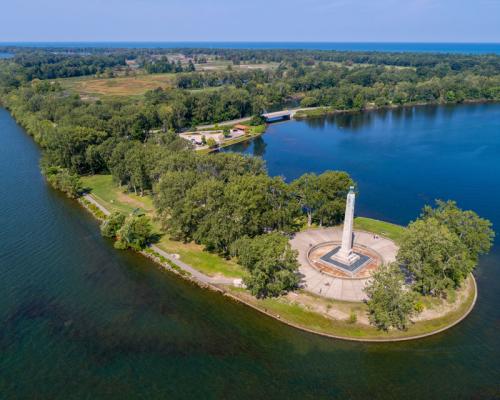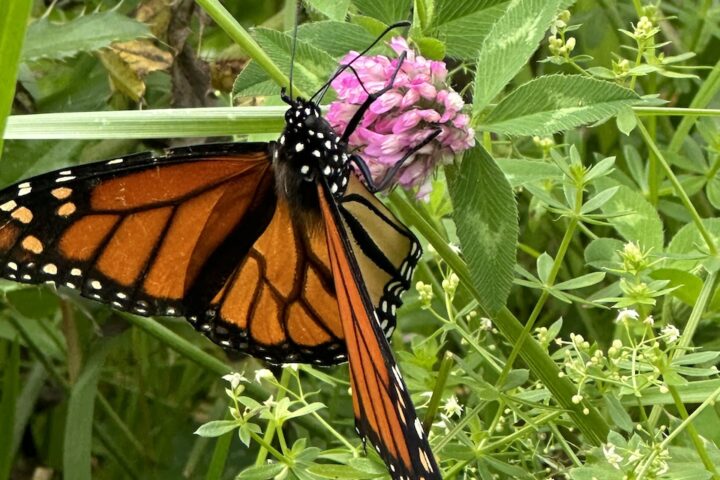The Western Pennsylvania Conservancy’s Watershed Conservation Program was awarded the U.S. Forest Service’s Partnership Award at the 2022 National Rise to the Future Award ceremony on June 15, 2023, at the U.S. Department of Agriculture’s Whitten Building in Washington, D.C.
Conservancy Watershed Manager Kylie Maland, Watershed Project Manager Luke Bobnar and Senior Director of Aquatic Sciences Eric Chapman accepted the NFS Partnership Award on behalf of the Conservancy’s longstanding watershed work in the Allegheny National Forest (ANF) and the Allegheny Watershed Improvement Needs (WINs) Coalition. Other awards were presented to various organizations for excellence and leadership in the NFS Fisheries, Hydrology, Wildlife, Air and Soil Science Programs.
The ANF staff nominated the Conservancy for the award, noting that Western Pennsylvania Conservancy (WPC) has been one of ANF’s strongest watershed restoration allies for nearly 20 years and is a shining example of the power of partnership and collaboration.
“The Conservancy’s Watershed Conservation Program recognizes the value of the high-quality forests and streams in the ANF, as well as the opportunity to improve aquatic and watershed conditions. It is an honor to recognize their hard work and share the deepest gratitude for their partnership,” adds ANF Forest Supervisor Jamie Davidson.
The Conservancy’s watershed work in the ANF is extensive and comprehensive. It includes the installation of in-stream restoration projects to mitigate flood risks, slow erosion and improve floodplain connectivity. The Conservancy has also planted riparian trees, conducted aquatic surveys, and removed dams and replaced culverts in the forest to improve aquatic diversity and health, and water quality.
Also, through large woody material restoration, the Conservancy has an integral role in improving watersheds and aquatic communities in the forest. Woody material reintroduction helps mitigate flood risk downstream, ensure cool water during summer low flows and improve connections between aquatic and terrestrial ecosystems. Since 2013, the Conservancy and ANF have partnered to explore the benefits of this restoration technique to aquatic habitat enhancement in the national forest. To date, they have led the implementation of these methods on more than 30 miles of streams, which has also improved more than 60 acres of floodplains.
Jenifer Christman, vice president of the Conservancy’s watershed work, says her team tirelessly works with partners and landowners to implement various watershed restoration protects to improve important forest ecosystems and watersheds, such as ANF.
“I’m so happy for my team to be recognized by such a great partner as the Allegheny National Forest,” Christman adds. “It truly is a collaborative working relationship where both parties bring resources and knowledge to bear that positively impacts this entire region. It is a landscape-level partnership that involves more entities than we could ever acknowledge.”
Since 2001, the Conservancy’s Watershed Conservation Program has provided technical assistance to local landowners, watershed groups and the community on water quality issues. With the help of landowners and partners, the Conservancy has restored 3,000 miles of rivers and streams and planted more than 72,000 riparian trees to improve degraded aquatic and riparian habitats, including on farms and other privately-owned lands.
The Conservancy’s longstanding interests in ANF date back to the 1970s. More than 13,000 acres of land along the Clarion and Allegheny rivers have been protected and transferred to NFS to expand ANF.



